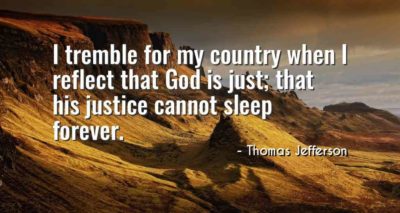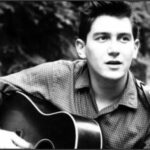An editorial written by deacon David Mulholland:
***
I cannot speak for children who marched in person or in spirit around the nation – actually around the world, last Saturday against gun violence. If I learned anything from being in DC on March 24th, it was that children who oppose gun violence are capable of speaking for themselves. In fact I heard capable young speakers articulate views with individual voices and, often unlike their elders, acting as one. These kids did not mimic and repeat lines for which they were trained and groomed as some had broadcast. They were present, genuine, and determined to make their lives and their peers’ lives matter to adults charged with their care. They spoke, sang, wore, and held messages emanating from deep within, messages forged in the fires from standing up to fear in areas even as remote as Vermont, or from attending family or friend’s funerals spawned by violence. Today they were not there to be “liked” or be “friended.”
The message of ending gun violence volleyed in many forms that expressed emotions ranging from anger to grief to fear to empathy and to all forms of love and support. On the main stage, echoed across a succession of Jumbotrons, children shared hopes, despite violence and death that had cut them deeply, yet leading them to reject the pervasive hopelessness confronting them that feeds legislative gridlock. Some kids shared uncomfortable prolonged memorials of silence, infectious tears, or had unexpected, repeated episodes of vomiting, not merely from nerves, but from a gut recently riddled with bullets. On the north side of Congress grounds youthful punk musicians and acoustic guitar players gave raucous tributes, unaffected by the lack of crowd size, bolstered by their common message, without requiring fellow musicians to play or look or act like them. They shared impromptu, worn grass or stone stages, driven by making their voices heard as best they know how. Altogether school violence survivors linked hearts with other children who suffered violence in their neighborhoods or at home. They understand what many adults fail to acknowledge: that all children learn and live on the surface of the same planet and, when cut down by violence, lay in the same earth.
In DC there was no central parade of clichéd placards, led by dignitaries fighting for attention of cameras, processing past beautiful, but lifeless historical landmarks. None of that today. To the contrary these living kids made history simply by showing up and being themselves. The 800,000 in DC and countless others standing across the globe were the message. They will not stand for excuses that “now is not the right time” to discuss any helpful solution when they know that now is not the right time for them to be shot and die. They are realistic enough to ask “Am I next?” without expecting an honest or informative reply. On that day, they spoke of the unthinkable and asked the unanswerable in the face of the callous silence of public officials. These kids’ questions are more powerful than the disingenuous answers that they receive. They know it.
Irony pervades during what is Holy Week for many around the world. In its pageantry Holy Week commemorates a triumphant arrival steeped in an unfolding tragedy. For Christians “thoughts and prayers” happened before Jesus demonstrated non-violent leadership, ignoring temptation to strike out violently and instead performed a greater, selfless good. “Thoughts and prayers” had meaning then only because of his action and hope that followed and the hate that did not. These kids proclaim that we have lost that connection in this continuum of action. They experience inaction as the grease that has made slippery the slope between the elevated impossibility of a shooting at their school and the inevitability of tragedy lying below where things could be heading. They want to know where they stand on this tilted spectrum and why.
With so many youth around me in the crowd, I soon became aware that, despite my average height, I was taller than many and partially blocked the view of a Jumbotron across the street. Literally and figuratively it was my time to move out of the way. Walking down side streets thereafter, I saw signs of hope in the commonest of places, too. I saw young kids and families lined up at ice cream trucks being kids and families from anywhere and everywhere, gawking at monuments to democracy or hoping to see the Michelle Obama portrait. They had not abandoned their homemade signs or inscribed t-shirts. Nor did they chant or be intrusive. They were simply being themselves, living their personal message unfazed and undiluted by pleasurable distractions. They spread out like spokes on a wheel from Pennsylvania NW and 6th towards everywhere. They are the message and the hope. They did not need to be draped in the stars and stripes because they bear the scars and scrapes of being democracy at its core, with all of the uncertainty dredged up from within, pleading for a chance at “life, liberty, and the pursuit of happiness,” of which they also dream. Many of them are the “tired and poor…yearning to be free,” young, but fully American.
I ended my rally time scanning the southwestern horizon through cherry blossom buds towards the Jefferson Memorial. An inscription I remember reading there when a much younger man Jefferson once penned to himself and to fellow leaders, “I tremble for my country when I reflect that God is just.” I left Washington satisfied that I had seen and heard in lives that touched me that youthful cries were indeed collectively the persistent hum of America pleading for justice for all, maturing within them, and by which America will survive and have meaning. Yet, throughout my time among them their voices consistently sought no vengeance; there was no denouncing of enemies. Pro-gun kids were there, too, hoping to dialogue. Together their call to arms was for all to open our arms to one another. They know that, with arms open, it is hard to hold, point, and shoot a weapon at them at the same time. We need to listen to them and do it now.
David Mulholland
Westminster West, VT


